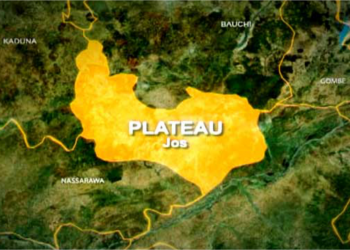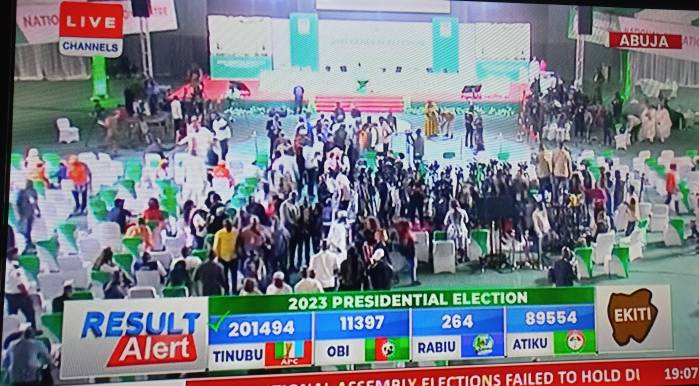Months after the Senate had passed the Petroleum Industry Governance Bill (PIGB), the House of Representatives has also okayed bill in union with the Upper legislative chamber.
The 191-page bill, which is a segment of the yet to be passed Petroleum Industry Bill (PIB), provides for the governance and institutional framework for the petroleum industry and other related matters.
The major aspects of the bill seek to unbundle the Nigerian National Petroleum Corporation (NNPC) and provide for the establishment of Federal Ministry of Petroleum Incorporated, Nigerian Petroleum Regulatory Commission, Nigerian Petroleum Assets Management Company, National Petroleum Company and Petroleum Equalisation Fund.
Deputy Chairman, Ad-hoc Committee on Petroleum Industry Bills, Victor Nwokolo (PDP, Delta), who led the debate on the report, explained that the regulatory bill would unbundle NNPC and create the National Petroleum Regulatory Commission (NPRC), which would take over the functions of the Department of Petroleum Resources (DPR), Petroleum Inspectorate (PI)and Petroleum Products Pricing Regulatory Agency (PPPRA).
He explained that some subsidiaries of the NNPC had also been merged into an entity to be known as the Nigeria Petroleum Regulatory Commission. According to him, the House Committee adopted the Senate’s version of the PIGB. The Bill is a fragment of the entire PIB, which is still gathering dust at the Senate over a decade now as it only deals with the regulatory framework.
The PIGB states that upon recommendations of the Nigeria Petroleum Regulatory Commission, the Minister of Petroleum Resources can grant, amend, renew, extend or revoke any licence or lease required for petroleum or production in pursuant to the provisions of the Act or any other enactment.
Other components of the bill include the power for issuing and revoking licenses, which is also domiciled in the Commission as well as allocating petroleum production quotas in a non-discriminatory manner. The commission is also empowered to advise the Minister on fiscal and other issues pertaining to the petroleum industry, establish framework for the validation and certification of national hydrocarbon reserves, undertake evaluation of national reserves and reservoir management studies as well as conduct regular audits of the activities of operators engaged in petroleum operations and oil service companies in order to ensure compliance with Nigerian laws and requirements for petroleum operations.
In the Bill, the new commission NPRC, will also administer and enforce policies laws and regulations relating to all aspects of petroleum operations assigned to it under the provisions of the Act.
Read also: Petrol: Pump price remains N145 -Kachikwu
In the PIGB, the Ministry of Petroleum Resources is to be renamed the Ministry of Petroleum Incorporated. It also vested on the NPRC more powers to regulate and enforce policies. This will significantly reduce the powers of the President and Minister of Petroleum Resources they hitherto held in exercising control of the oil and gas sector.
Apart from the powers, the Commission would be vested with regulating the oil sector, it would have control of the assets, funds, resources and other movable and immovable properties, which were held by the Petroleum Inspectorate, DPR and PPPRA.
The Deputy Chairman House Ad-hoc Committee on Petroleum Industry, Bills Nwokolo, listed the benefits of the bill to include promoting transparency and accountability of revenue derived from oil while also fostering a conducive business environment for petroleum industry operations in the country.
The bill according to proponents will open up the sector to more and better business opportunities, enhance exploitation and exploration of petroleum resources in Nigeria for the benefit of Nigerians, optimize domestic gas supplies, especially for power generation and industrial development and encourage investment in Nigerian petroleum industry.
Other key benefits of the PIGB as sourced by The Next Edition are its objectives to establish profit-driven oil entities, deregulate and liberalize the downstream petroleum sector, create efficient and effective regulatory agencies, promote the development of Nigerian content in the oil industry and protect health, safety of the environment in petroleum operations.
Petroleum Industry experts have taken a critical look at the PIGB and picked on some loopholes. Abiodun Adeyemi, an analyst in the Nigeria Extractive Industries Transparency Initiative (NEITI), noted that it was a fundamental error by the Upper Chamber in the, first instance, not to enshrine NEITI principles in the governance process in the Petroleum Industry Governance Bill.
The Nigeria Extractive Industries Transparency Initiative principles, which they say is not in the PIGB as they earlier canvassed for which targets visible impacts on the lives of the citizens include ensuring that revenues from oil, gas and mining result in poverty reduction; creation of jobs; security of lives and property; improved infrastructure; access to health care; education and social welfare.
He said contrary to the provisions of the bill, which proponents said will reduce the powers of the minister with the creation of NPRC, the Minister will still possess significant powers. That in event of a national emergency, the minister will have the right of pre-emption, over all petroleum and petroleum related products, under any license or lease granted under the Bill.
He said what this means is that the Minister, can order any crude oil producer or petroleum marketer to supply products either to the government or specified license holder.
He said the N10 million fine imposed by the Bill for defaulters has no sealing as the minister may increase the amount stipulated in the Bill.
Analysts also point out that the minister still has powers to determine the assets, liabilities and employees, which will be transferred to the new entities subject to an audit. The Bill is silent on the details of this audit.
They also pointed out an oversight in the PIGB, which makes reference to the Petroleum Inspectorate as one of the agencies the NPRC will replace together with DPR and PPPRA. The NEITI analyst explained that the Petroleum Inspectorate was excised from the Nigerian National Petroleum Corporation (NNPC) in 1988, during its structural re-organisation. And that it was then transferred to the Ministry of Petroleum Resources as its technical arm, and renamed the DPR as such Petroleum is embodied in DPR not an independent entity as the bill states.
He, however, applauded the provisions of the Bill which creates a special investigation unit in the regulatory Commission to keep surveillance on oil and gas installations for illegal activities and will have the power to work with the police to make arrests. He said this should give some comfort to stakeholders.
The PIGB which was passed by the House of Representatives last week eight months after the Senate passed the bill on May 25, 2017 is seen by stakeholders as a stepping stone towards the passage of the main PIB which Nigerians are yearning for its passage given its importance in revolutionizing the oil and gas sector in Nigeria.
The Petroleum Industry Bill is seeking to promote host communities’ participation in oil process and local content. The bill also seeks to create an environment conducive for business as well as protect health and safety of the environment. Promoters of the bill like, Joseph Akinlaja, (Ondo-PDP) said when passed into law, it would address challenges facing the petroleum sector, especially as it related to host communities.
He said the bill would also provide a framework for petroleum producing community’s participation, cost and benefit sharing among the government, petroleum exploration companies and host communities.
This, he emphasized, will help in checking the frosty relationship between host communities and oil companies.
However, with the passage of the PIGB, which is the governance aspect of the main PIB, stakeholders have called on the National Assembly to expedite action in getting the 17 year old PIB passed into law.











